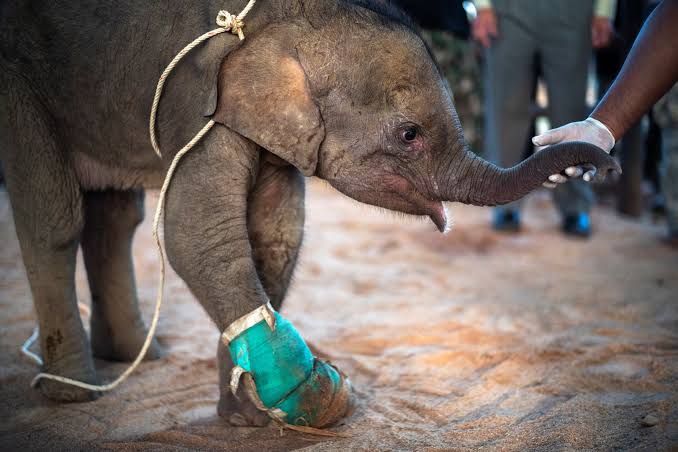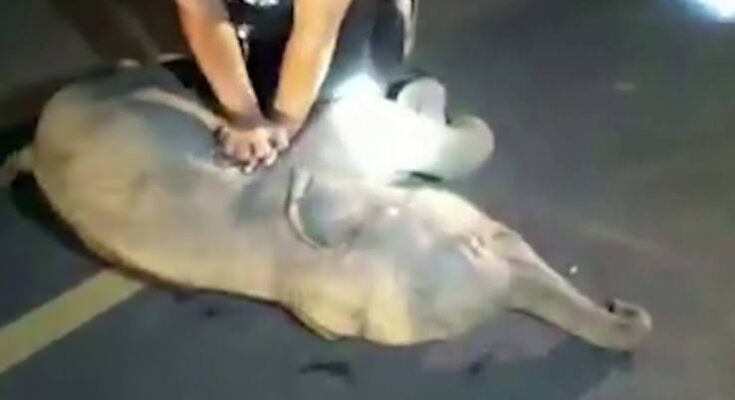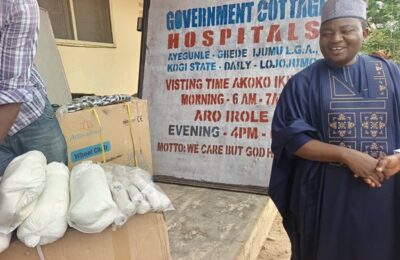On a dim Thai roadway, destiny nearly closed its fist on a baby elephant struck by a motorbike. Breathless, sprawled, and limp, the calf seemed condemned to death. Yet an off-duty rescue worker, Mana Srivate, refused resignation. Without training, without precedent, armed only with instinct and audacity, he delivered chest compressions for ten unbroken minutes. “I just didn’t want to give up,” he confessed. In that fragile theater of mortality, persistence prevailed—the calf stirred, rose, and rejoined its mother. The tableau is more than an accident scene; it is a parable of governance, a mirror in which Nigeria’s leaders must confront themselves.
Here was leadership in its rawest form: unscripted, sacrificial, unrelenting. Srivate’s resolve was CPR not just for an animal but for a future herd. In Nigeria, the republic itself is the calf—wounded by corruption, insecurity, and economic anemia. Yet too many leaders, rather than pressing with vision and vigor, stand aloof, calculating profit and power. John Maxwell’s dictum resounds here: “A leader is one who knows the way, goes the way, and shows the way.” In Nigeria’s corridors of authority, knowing the way without going the way is hypocrisy; showing the way without leading by example is treachery.

Achebe’s timeless indictment echoes with haunting accuracy: “The trouble with Nigeria is simply and squarely a failure of leadership.” That failure is not abstract; it is tangible—roads unbuilt, youths unemployed, security collapsed, unity shredded. A calf on the highway cannot resuscitate itself; nor can a nation in freefall heal by rhetoric. Governance, like CPR, is measured not in speeches but in pressure, in persistence, in the courage to act until life returns. Nigerian leaders who abdicate responsibility mid-crisis are no different from a rescuer who abandons compressions midway, content to watch the calf die.
The parable grows sharper when one recalls that the calf represented tomorrow’s herd. So too, Nigeria’s youths embody the future of the nation. To neglect their education, stifle their enterprise, and crush their voices is to suffocate the nation’s lungs. An African proverb instructs, “When the roots are deep, there is no reason to fear the wind.” But shallow governance has left Nigeria’s roots exposed, vulnerable to every gust of global turbulence. To revive the republic is to replant those roots—in justice, in equity, in opportunity.
Thus the lesson is brutal yet clear: leadership is not ornamental, it is existential. It is not power for pomp but sacrifice for survival. It is kneeling in the dust of a fractured nation and pressing, pressing, pressing until hope stirs again. The cry of that resurrected calf on a Thai road should echo in Aso Rock: fragile nations can live again if leaders refuse to abandon the compressions of duty. The question is stark—who among Nigeria’s rulers will dare the dust, endure the sweat, and press until the nation rises?
– Inah Boniface Ocholi writes from Ayah – Igalamela/Odolu LGA, Kogi state.
08152094428 (SMS Only)




